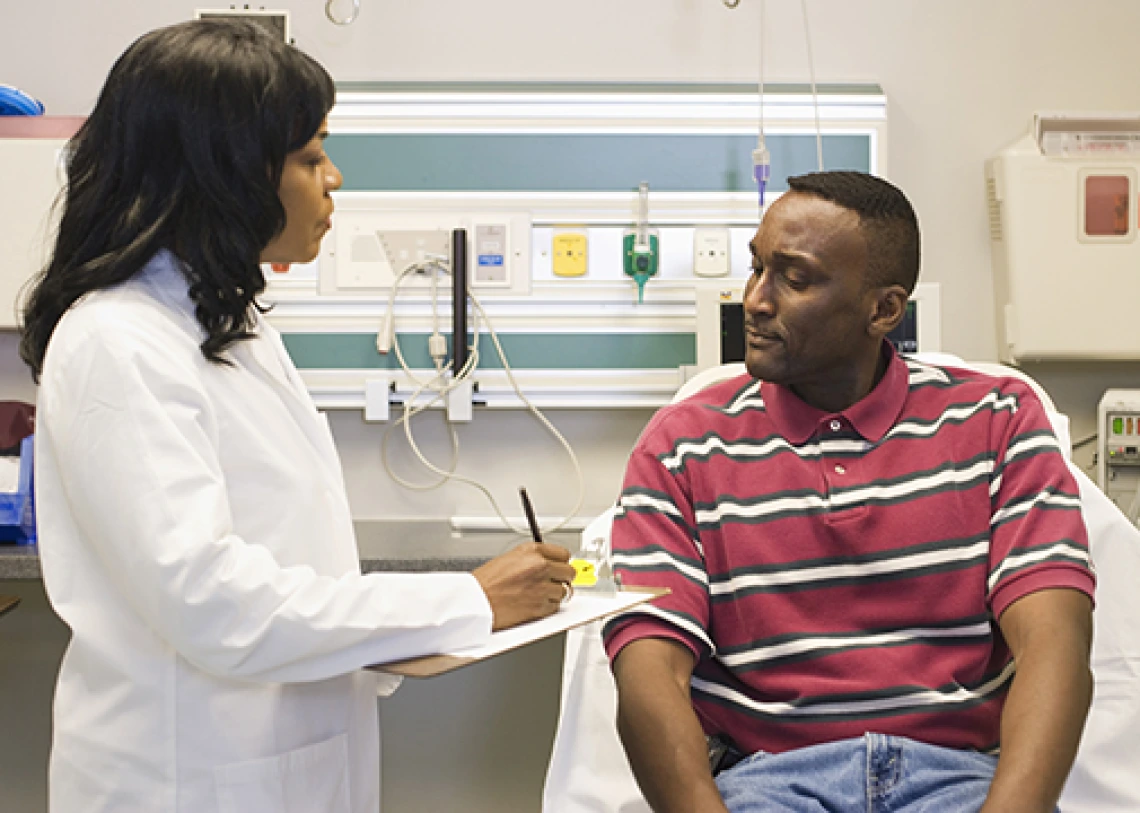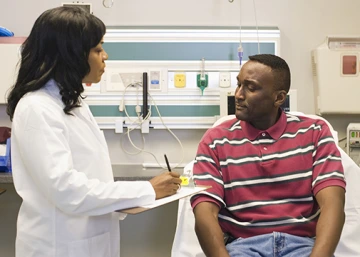Expanding Roles for Genetic Counselors in the Era of Precision Medicine
As physicians begin to order an increasing number of genetic tests, a question remains: who can help patients, and sometimes providers, interpret genetic information?


Genetic counselors often sit down with patients and their families to collect detailed family histories, review options for genetic testing, and discuss the potential implications of genetic testing on both the patient and other family members.
Data from the US Department of Labor has found that genetic counseling is one of the fastest growing professions in the United States. However, many still are unaware of this field of health-care. Genetic counselors are trained medical professionals well versed in both medical genetics and patient counseling. Together, this unique combination of skills affords genetic counselors a clear understanding of complex genetic health information, and the skill sets to translate that information to patients and untrained healthcare providers.
The primary role of genetic counselors in the clinic is to help patients and their families interpret, understand, and make decision about their genetic health. In many ways, genetic counselors can serve as patient advocates, teachers, counselors and providers. Genetic counselors often sit down with patients and their families to collect detailed family histories, review options for genetic testing and discuss the potential implications of genetic testing on both the patient and other family members. Genetic counselors interpret the results of genetic testing, and together with the patient, family, and members of the healthcare team, help determine the most appropriate path for patients.

Genetic counselors interpret the results of genetic testing, and together with the patient, family, and members of the healthcare team, help determine the most appropriate path for patients.
To meet this growing demand, the University of Arizona will open a graduate program in genetic counseling in fall 2019. The UA Center for Applied Genetics and Genomic Medicine and the Department of Cellular and Molecular Medicine have teamed up to offer this new and exciting master’s degree program.
The 22-month program will immerse students into the field of genetic counseling, using a combination of classroom-based coursework and practical clinical experiences. “Our students will have the opportunity to train with genetic counselors and medical genetics professionals working throughout Tucson and Phoenix and will be able to serve the diverse populations in southern and central Arizona. These unique experiences will allow our students to enter the genetic counseling workforce with a strong foundation, preparing them for a wide array of careers in this field,” says Dee Quinn MS, CGC, director of the UA Genetic Counseling Graduate Program.
The program is accepting applications for the upcoming year and they are due Jan. 1, 2019. Individuals interested in the program are encouraged to visit the UA Genetic Counseling Graduate Program webpage to learn more.
About the Author
Valerie Schaibley, PhD is the Administrator for the Center for Applied Genetics and Genomic Medicine at the University of Arizona Health Sciences, where she works to advance precision health in the state of Arizona. She received her PhD in Human Genetics from the University of Michigan and worked for several years in industry, developing genetic tests for precision medicine applications.
About the Author
Kenneth S. Ramos, MD, PhD, PharmB, served as associate vice president for precision health sciences at the University of Arizona Health Sciences, director of the Center for Applied Genetics and Genomic Medicine and the MD-PhD Program, and professor of medicine. In 2019, Dr. Ramos accepted a position as executive director of the Institute of Biosciences and Technology in Houston and assistant vice chancellor for Health Services at The Texas A&M University System.
Dr. Ramos is a physician-scientist with interests in molecular and precision medicine, particularly as it relates to vascular pathology, oncology and chronic diseases of the lung. His translational research program integrates diverse approaches ranging from molecular genetics to population-based studies to elucidate genetic and genomic mechanisms of pathogenesis, and to develop novel approaches and therapies to minimize chronic diseases caused by environmental injury. Ongoing translational studies in his laboratory focus on the study of repetitive genetic elements in the mammalian genome and their role in genome plasticity, toxicity and disease, while clinical studies focus on the development and characterization of diagnostic and prognostic biomarkers of cancer and chronic pulmonary disease to advance the goals of personalized genomic medicine. He has directed two NIH P30 Centers of Excellence working at the interface between genomics and environmental health and medicine and have provided administrative and scientific leadership for two academic centers focusing on genetics and genomic medicine. He has influenced the career of many scientists through my involvement in several NIH-funded training and career development programs where he has mentored over 100 doctoral, medical, veterinary, undergraduate and high school students, many of whom have gone on to successful careers in academia, medicine, government and industry. He is deeply committed to initiatives that advance precision medicine and its applications to reduce disease burden and health disparities, improve quality of healthcare and reduce costs.

